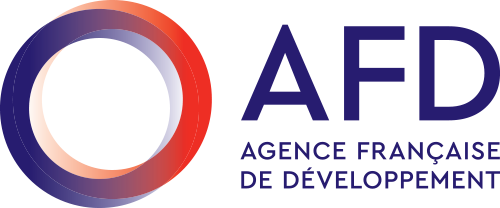Irrigation development and adaptation of irrigated agriculture to climate change in semi-arid Morocco
Providing sustainable irrigation to improve the climate resilience of subsistence oasis farming and larger-scale date and olive agriculture within the Boudnib Valley.
The Boudnib Valley has a high vulnerability to increased temperatures and water scarcity as the effects of climate change. The local population relies on oasis-based agriculture along the Guir wadi, which is an intermittent river severely affected by several years of drought and irregularity. Small-scale oasis farming has created a poverty trap that forces many to migrate in search of employment.
Recently, however, new investments have changed the situation on the ground by expanding agriculture beyond the oasis areas. These relatively large scale farms produce quality dates and olives through the exploitation of deep groundwater by pumping.
Ensuring the long-term preservation of underground water supplies is essential to protect both oasis subsistence farming and the larger-scale date and olive farms from climate change risks. This project will create a connecting irrigation system to the Kaddoussa Dam that is currently being built upstream of the Guir wadi, ensuring downstream agricultural sustainability by providing surface water for farming. This will improve the situation of oasis agriculture and alleviate the pressure on the deep groundwater. The project will build the climate-resilience of oasis communities, and set up cross-cutting sustainability measures such as technical assistance, groundwater preservation, and environmental and social impacts management.
The project has an estimated lifespan of 5 years.
Project timeline
Pipeline
08 Aug 2015 • 608 days
Funding proposal received
08 Aug 2015
Cleared by GCF Secretariat
31 Aug 2016
Approved
06 Apr 2017 • 554 days
Approved by GCF Board
06 Apr 2017
Cleared by iTAP
06 Apr 2017
Legal opinion on AE's Internal Approval
19 Jan 2018
FAA executed
13 Jul 2018
Under implementation
11 Oct 2018 • 2,379 days so far
FAA effective
11 Oct 2018
Disbursement - USD 2,272,727
07 Feb 2019
Annual Performance Report
01 Mar 2019
Disbursement - USD 5,681,818
22 Sep 2021
Disbursement - USD 11,363,636
14 Dec 2023
To be completed
11 Apr 2026 • 361 days to go
-
Financing
- Private sector
- Public sector
-
Size
- Micro
- Small
- Medium
- Large
GCF financing85% disbursed
| Instrument | Amount |
|---|---|
| Grant | USD 22,727,272 |
| Total GCF Financing |
|---|
| USD 22,727,272 |
Co-financing
| Co-financer | Instrument | Amount |
|---|---|---|
| Co-Financing | Loan | USD 45,454,545 |
| Co-Financing | Grant | USD 1,136,363 |
| Co-Financing | Grant | USD 17,045,454 |
| Total Co-Financing |
|---|
| USD 63,636,363 |
GCF Contacts
General media inquiries
GCF CommunicationsSend e-mail
Request for information
GCF Information DisclosureRequest information about this project
Project complaints and grievances
GCF Independent Redress Mechanism (IRM)Phone +82 32 458 6186 (KST)
File a complaint
Integrity issues
GCF Independent Integrity Unity (IIU)Phone +82 32 458 6714 (KST)
Send e-mail
Entity

Agence Française de Developpement
Delegated External Funds Expert
AFD, 5 rue Roland Barthes, 75012, Paris, France
More contacts
National Designated Authority
Ministry of Energy Transition and Sustainable Development- Department of Sustainable Development
Director of Climate and Diversity